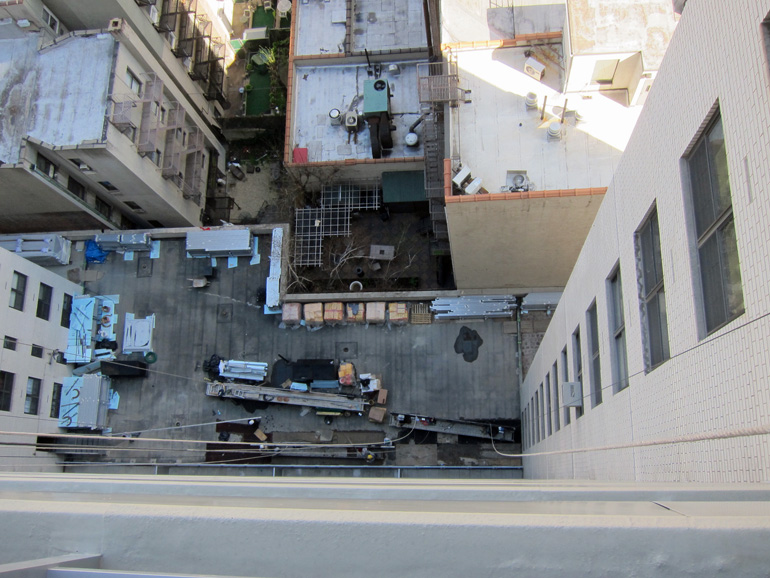Gotham Diary:
Curdled
23 April 2013
The drilling noises, coming from nowhere in particular, continue to spread a dreary atmosphere of general dentistry. Today, for my sins, I am actually going to the dentist — a new one. For several years, I’ve gone to a dentist in a nearby building, but, because of one thing and another, I haven’t gone. Let me gently hint that I don’t think that the technician who cleans teeth likes me. And when you suspect that someone with drills in your mouth doesn’t like you…
From the dentist I plan to go to the old storage unit, to retrieve some of the old notebooks that I’ve been talking about it. I have learned not to see them, so I’m not sure where they are, but I hope to find them without much ado. It is not a nice day, but cold and dark with rain in the forecast. I’d give anything to be able to stay home.
***
It has been a while since our New Yorkers arrived on Monday, so I haven’t yet seen the current issue, but I’ve read a snip of it at my friend Jean’s blog. David Remnick, writing about the Tsarnaev brothers (the Boston Marathon bombers), observes, “The digital era allows no asylum from extremism, let alone from the toxic combination of high-minded zealotry and the curdled disappointments of young men.” This “curdled disappointment” strikes me as a much bigger problem, right this very minute, than global warming. Global warming is almost certainly a problem that will require the consideration of several generations simply to assess in manageable terms. The consequences of curdled disappointment are all too likely to interfere with such long-term deliberations, depriving society of the kind of calm stability that has enabled the fruitful social and technological developments of the past seventy years.
It’s time to rephrase Freud’s question: What do young men want? Better still: what do young men need? And what do you do about young men whose needs have not been met, not remotely? I’m willing to accept, theoretically, the occasional emergence of “bad people,” but the Tsarnaev story is so characterized by disconnection that I can’t begin to place primary responsibility on the damaged boys.
And why do I keep thinking about Ayn Rand and her fans? Not so much their refusal to take responsibility for the Tsarnaevs of this world — although I despise them for that — as for their trumpeting noisy anthems about the Land of Opportunity, which make everything sound so simple. We need to be sending an alternative message to the rest of the world: America is a tricky country, where good luck takes strange forms and where falls can be very, very hard. Think twice before leaving a dense web of family support behind!
My barber told me yesterday that he is going to take his citizenship test today. He has been studying the hundred questions, and two other barbershop clients, both of them professors, have assured him that he now knows more about this country than their students. I have no doubt that Tito is going to thrive in the United States; he’s savvy and self-directed. But the well-documented ignorance of American high-school students, where basic American history is concerned, suggests that the Rand rot goes much deeper than Rand’s readership. There seems to be an implicit understanding that, if you’re an American, you don’t have to know anything!
What’s for two smart boys, born in a very different world, to admire in that?

